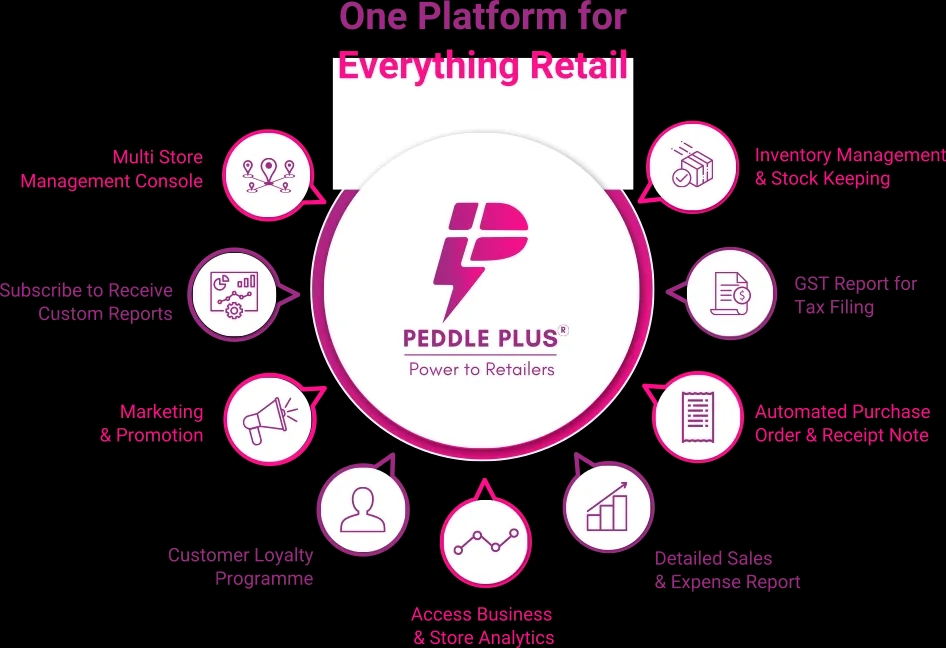Peddle Plus Billing Software for B2C & B2B | GST Invoicing & Inventory ERP
Simplify billing and inventory with Peddle Plus – the all-in-one software for B2C & B2B businesses. Create GST-compliant invoices, manage stock, and scale with 1,000+ retailers across India. Book your free demo today.

Indian Retailers
Daily Transactions
Business Recorded

Retail ERP Software with Maximum Features
Inventory management
Classify and group the complete stock correctly for any number of Products & SKUs. Automatically manage stocks and place supplier orders.
Billing & Invoicing
Get GST-ready with our easy-to-use billing software which creates GSTR-I, GSTR-II & GSTR-III automatically from the system without any double entry.
Point of sale
Increase productivity with the easiest POS billing module for small & medium retailers. It covers all types of POS like normal sale, exchange and complimentary.
GST Accounting
Instantly obtain your primary books of account with analysis tools like daily transaction sheet, cost center reporting and more.
- FREE onsite demo
Get a Free Demo of our retail software and its modules like inventory, billing, ERP, etc.
- Priority support
You can easily reach our support team in Hindi & English and clear your doubts.
- training for staff
We also provide training to your staff regarding the operation of our software.
We are open for any suggestion or just to have a chat
Call us
For free demo: +91-76783 00366
For technical support: +91-11-41403525
Mail us
For free demo: sales@peddleplus.in
For technical support: support@peddleplus.in
Click the WhatsApp icon on the below-right to chat with our team.